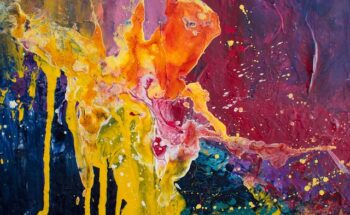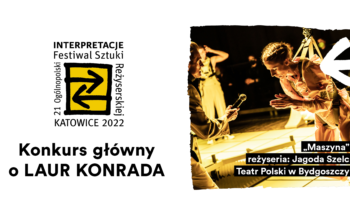
22/10/2018
Why do we even want to talk about the ‘art of directing’? What is the ‘art of directing’? This issue being the central theme of the nationwide festival held for 20 years now would imply that there might be a definition one can rely on. After all, both jury members and the audience, making judgements much more important than just issuing ‘purses’ and ‘laurels’, need to base their decisions on something.
However, Zygmunt Hübner begins his classical book “Sztuka reżyserii” (“The Art of Directing”) by discussing the issues with the definition of ‘the art of directing’. He notes that this combination is provocative and underspecified, which may give rise to many misunderstandings and artistic attempts to address them. After all, how should we understand ‘art’? As a finished product, a process, artistry or a skill, as the origins of the definition of ‘art’ (techne), pointed to by Władysław Tatarkiewicz in “Dzieje sześciu pojęć,” would like? And then these are not the only solutions possible. The longer we reflect upon the problems with how we should define ‘art’, the bumpier the road our thoughts follow.
What about ‘directing’, then? How to tell it from ‘staging’? The process in which the director is the key demiurge takes on subtly different meanings in various languages and thus cultural contexts. This would suggest that, as with ‘art’ itself, we do not have to do with just ‘one kind of directing’, but ‘several kinds’ existing simultanously. The very artistic dimension of this concept is far from unambiguous. Can we put a clear dividing line between theatre, radio and TV direction? Now, if we add performative and visual arts (does the sculptor Artur Żmijewski become a director by staging a mass at a theatre?), entertainment shows, celebrations such as parades and rallies, how could we separate one kind of directing from the other? Is it impossible? Maybe the search, in which Hübner gets stuck, too, is doomed to failure from the outset? Maybe the ‘art of directing’ tells us to focus on some kind, any kind, of creative, or artistic, action, and actually seek for something completely different. Towards the end of his reflection on definition problems, Zygmunt Hübner does not give a clear answer; he clearly states that: Directing has become one of the 20th-century arts. It is of the secondary importance whether we recognize it as one of ‘the high arts’ or applied arts, or even deprive it of its place in the Pantheon of art.
The fact that it governs our consciousness to such a great extent is a reason good enough for us to devote more attention to it. Even though it is the 21st century, offering much more interesting perspectives, we have pursued this belief while picking the events to provide the Festival with some substantive support. The result is a series during which we are going to reflect, along with the audience and invited experts, upon “the art of directing” in various contexts.
Along with Zbigniew Kadłubek of the University of Silesia, we are going to take a look at the very concept of ‘direction’. We will look into how we can find it in the history of culture and the meanings and interpretative possibilities it offers. In a more or less conscious way, our lives are subject to the power of language, which makes it so important to understand the concepts we use while searching for our place in the reality.
With Jakub Papuczys of the Jagiellonian University, we will take a closer look at a major social phenomenon that has stirred craze since ancient times. In the year of the 21st Football World Cup, this perspective seems even more interesting. Sport as a theatrical phenomenon, a show or an artistic performance is not just about directing intense emotions. It is also an aggregate of emotions en masse, which the director can effectively manage.
Talking about the management of emotions, Marcin Napiórkowski of the Jagiellonian University will introduce us to directing a special kind of actor: society. As argued by William Shakespeare and Erving Goffman, one may think of politics, our daily mythologies and even the memory in terms of theatre, which suggests that the question of directing is extremely justifiable in this context. We are also going to extensively cover theatre as conceived in artistic terms.
Tomasz Plata (Aleksander Zelwerowicz National Academy of Dramatic Art in Warsaw) will introduce us to posttheatre, manifesting itself in the latest theatrical shows across Poland. He will also address the question of whether one can think of post-directing in this case, and if so, how it may be characterized.
In opposition to the male-dominated lectures, the end will feature a discussion panel “Reżyseria jest kobietą” (“Directing is a woman”), during which Joanna Krakowska (PAN) and invited female directors, the representatives of several generations of artists, will look at the presence of female artists in Polish theatre, both from historical and contemporary perspectives.
We will try to see if the claim that female directors play a dominant role in the Polish theatre today is justifiable. We hope that the series of lectures, meetings and discussions will provide us more insights into what the ‘art of directing’ is or could be. Most importantly, we hope that this will become an important part of the Festival programme and will help us consider competition and master performances and the surrounding reality from a broader perspective.
Miłosz Markiewicz
Kategoria:
Bez kategorii



